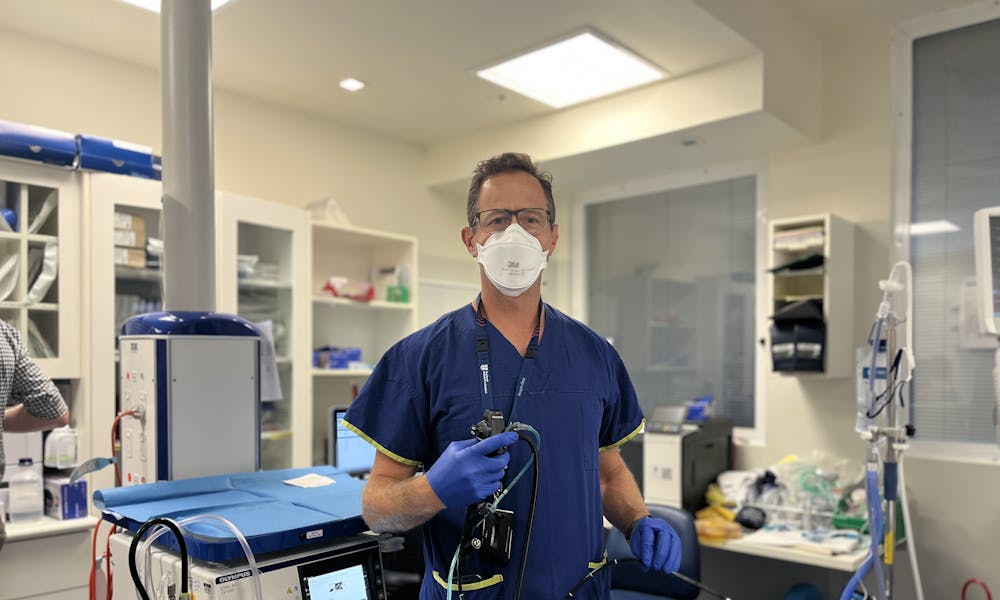An Australian study has highlighted a way to improve pre-treatment testing of lung cancer patients, to better detect cancers that may have unknowingly spread.

The SEISMIC study - a collaboration between the Royal Melbourne Hospital (RMH), Peter MacCallum Cancer Centre and the University of Melbourne - involved patients diagnosed with non-small cell lung cancer (NSCLC) that was locally advanced, meaning it had not spread to other organs in the body.
These patients can be cured with radiotherapy so long as their cancer is successfully targeted, and the standard approach for planning this treatment relies on a PET scan to define the extent of spread.
All 155 patients in this international clinical trial received a PET scan – plus a comprehensive endoscopic procedure to check for any sign that cancer cells had escaped the primary tumour site. This procedure involves sending a camera down the windpipe and an ultrasound guided needle to take tissue samples, including from lymph nodes in the chest cavity.
In 57 patients (37%), the endoscopic procedure found a discrepancy in extent of cancer compared to PET scan alone and in 18 (12% overall) of these patients, escaped cancer cells were found in lymph nodes with a major impact on treatment.
The study concluded, if these treatments relied on PET scan only, the escaped cancer cells would have received around 10% of the required radiotherapy dose meaning an “extremely high likelihood of treatment failure”. These results have just published in Lancet Respiratory Medicine.
Lead author Professor Daniel Steinfort – a Respiratory Physician at the Royal Melbourne Hospital and Peter Mac, and Principal Research Fellow at University of Melbourne - said the study demonstrates how the current PET scan only approach was too limited to accurately map the true extent of disease in NSCLC patients.
“This highlights the importance of systematic endoscopic staging on optimal treatment planning for these patients as, for about a third, it gave us more accurate information about the extent of their disease,” Prof Steinfort said.
“This included identifying some cancers where the extent of spread was greater than standard tests had indicated and allowed us to more accurately target radiation therapy to the sites of disease.”
This was the first multi-centre and international study – involving sites in Melbourne and the Netherlands, USA and Canada - to prospectively show the benefits of endoscopic staging in NSCLC patients with locally advanced cancers.
Peter Mac’s Professor Shankar Siva, senior author on the paper, added: “Relying on PET scan alone to plan these treatments will, for many patients, not give them the best chance of a cure. I suspect that the SEISMIC findings will lead to practice-change globally”.

We provide a media service from 6am to 9pm each day. Journalists are welcome to contact our media adviser on-call via the RMH Switchboard on (03) 9342 7000.
During business hours, journalists can email mh-communications@mh.org.au. We do not respond to emails outside business hours.

